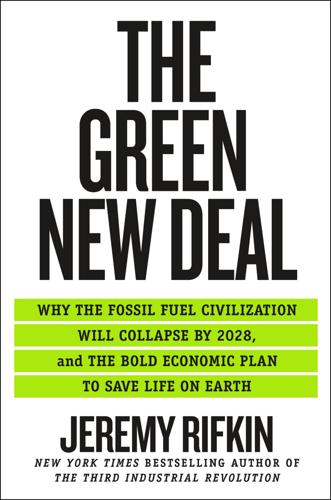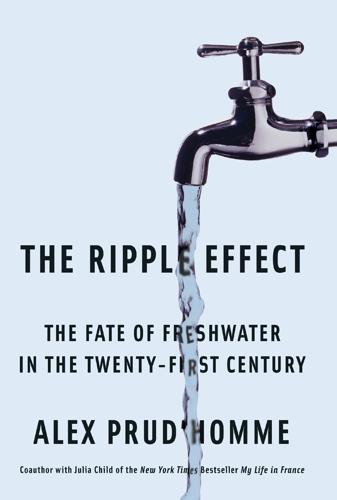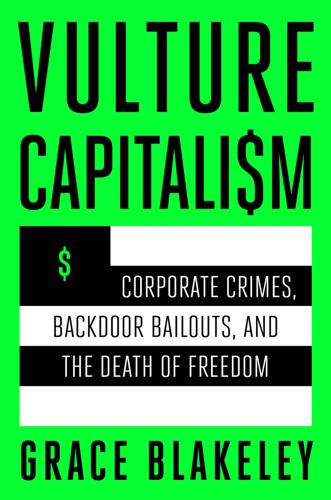
This Changes Everything: Capitalism vs. The Climate
by
Naomi Klein
Published 15 Sep 2014
On that day, 50.9 percent of Hamburg’s voters cast their ballots in favor of putting their electricity, gas, and heating grids under the control of the city, reversing a wave of corporate sell-offs that took place over a decade earlier.3 It’s a process that has been given a few clunky names, including “re-municipalization” and “re-communalization.” But the people involved tend to simply refer to their desire for “local power.” The Our Hamburg–Our Grid coalition made a series of persuasive arguments in favor of taking back the utilities. A locally controlled energy system would be concerned with public interests, not profits.
…
Boone, 237–38, 252 Pickens Plan, 237 Pierre River Mine, 379–80, 383 Piketty, Thomas, 113, 154–55 Pinatubo eruption (1991), 258–59 weather effects of, 259, 270, 271–72, 274 Pinatubo Option, 258, 259–62, 274 famine and drought as consequences of, 270, 279, 287 solar power generation affected by, 259 termination problem in, 260 weather patterns affected by, 260, 268, 270–71 Pine Ridge Reservation, 393, 396 pipelines, 141, 157, 349, 352, 362, 413, 446 as common threat, 315–16 Indigenous peoples and, 315, 319, 344–45 public value of renewable energy projects vs., 400 see also specific pipeline projects Pittsburgh, Pa., rights of nature ordinance in, 444 place, love of, in Blockadia movement, 337–66 planetary exodus, 288–89 planned obsolescence, 91 planning, long-range, see long-range planning Point Carbon, 225 Point Hope, Alaska, 375 Poland, 75, 144, 200, 225 polar bears, 435 Policy Implications of Greenhouse Warming, 282 Polis, Jared, 314 politicians, responsibility evaded by, 12, 119 politics, elite control over, 18, 119 polluter pays principle, 110–19, 202–3 pollution regulations, 39 polychlorinated biphenyls (PCBs), 203, 429 polycyclic aromatic hydrocarbons (PAHs), 426 Pooley, Eric, 207, 208 Pope, Alexander, 446 Pope, Carl, 237, 356, 357n population, 14, 114n populism, 117 postindustrialized nations, 79, 132, 177, 387, 460 poverty, 7, 19, 61, 85, 110, 115, 119, 134–36, 157, 177, 343, 455, 458 consumption and, 91 in developing world, 40, 55, 88n, 179–82, 409, 416, 418 extractive industries and, 181–82, 416 lack of protection and, 49 renewable energy and, 391, 399 Powder River Basin, coal mines in, 320, 323, 343–44, 395 power, corporate, 25 Power Past Coal, 349 power plants, coal-fired, see coal-fired power plants precautionary principle, 335–36 Premier Gold Mines, 382 Presidential Oil Spill Commission, 330 President’s Science Advisory Committee, climate change report of, 261 price controls, 125 PricewaterhouseCoopers, 15 Princeton Environmental Institute, 113 Princeton University, Carbon Mitigation Initiative of, 113–14 Prince William Sound, impact of Exxon Valdez oil spill in, 337–39, 426 privatization, 8, 9, 39, 72 diminished services under, 128 of disaster response, 51–52 of former Soviet economies, 19 and infrastructure investments, 108–9 as license to steal, 154 of public sphere, 19–20 reversals of, 39, 95, 96–103 Prize, The (Yergin), 311 Proceedings of the National Academy of Sciences, 79, 217, 328n “proof of harmlessness,” 271, 272 propane, 328 Prosperity Without Growth (Jackson), 93 protectionism, 64–65, 84 Public Accountability Initiative, 216 Public Citizen, 80, 213 Global Trade Watch of, 359–60 public health systems, 10, 109 public infrastructure, 19, 20 public sector, 95 crumbling institutions, 158 green energy and, 97–103, 406–7 and infrastructure investments, 108–9 spending cuts in, 19, 72, 110 public services, zero-carbon, 19–20 public transit, 7, 40, 92, 93, 108, 121, 124, 126, 127 in Brazil, 157 cheap, 91 in France, 109 in wartime, 16–17 public works, 39 Pungesti, Romania, anti-fracking movement in, 298–99, 303, 347, 404 quantitative easing, 110 Quebec: anti-fracking movement in, 303–4, 313, 348, 358–59 fracking moratorium in, 71 opposition movements in, 9, 464 Queensland, 27, 301 racism: environmental, 205, 429 sacrifice zones and, 310–11, 314 railways, 91, 108, 122, 133 coal transport by, 234, 362, 389, 397 high-speed, 126 oil transport by, 311–12, 325, 332, 333 Rainforest Action Network, 197, 296, 356 “Rainforest Chernobyl,” 309, 378 Rakotomanga, Cressant, 221–22 Rand, Ayn, 44 Rasch, Phil, 264 rationing, wartime, 115–16 Raytheon, 9 Read, Joe, 53n Reagan, Ronald, 39, 117, 203–5, 229 real estate: disaster infrastructure and, 51 in wake of Superstorm Sandy, 9, 235n re-communalization, 96–103 Red Cloud, Henry, 24, 393–97 Red Cloud Renewable Energy Center, 396 REDD-Monitor, 223 RedGE, 78 Red Hook, Brooklyn, 105n, 405 Reilly, John, 11 reinsurance, 9, 234 religion, and dominion over nature, 41, 74, 177 re-municipalization, 96–103 renewable energy, 16, 18, 67, 90, 93, 127, 131, 218, 253, 283 Asia and, 349–50 buy-local programs for, 77 cheap natural gas as undercutting, 128–29 community ownership of, 398–99 Gates’ dismissal of, 236–37 in Germany, 97–98, 130–31 incentives for, 138–39 investment in, see green technology, investment in major oil companies and, 111–12 maturing technology for, 213–14 misleading cautions on, 199–200, 394–95 noncorporate providers of, 131 100 percent, 101, 102, 137, 214–15 private sector and, 100–101 public ownership and, 97–103 public sector and, 97–103, 406–7 public value of, extractive projects vs., 400 in Spain, 110 transition to, 89, 97–103, 115, 214–15, 364 and variability of natural systems, 394–95 as viable alternative to fossil fuels, 349, 398, 399, 400–401, 403, 413–18 WTO’s slowing of, 71–72 reparations, 414–15 see also climate debt REPOWERBalcombe, 403–4 Republican party, 35, 118, 125, 141, 204 climate change denial and, 34, 36, 46, 407 Republic Windows and Doors, 123n resilience, 419, 442 Resisting Environmental Destruction on Indigenous Lands (REDOIL), 375–76 resources, depletion of, 450 Responsible Endowments Coalition, 401 Reyes, Oscar, 224 Richmond, Calif., 321, 402 right wing: as barrier to progress, 31–63, 75, 124 on climate change as left-wing plot, 31, 32, 156, 411 Rignot, Eric, 14 Rio Earth Summit of 1992, 55, 76, 77, 83, 85, 150, 200, 293, 363 Risky Business project, 49 Roberts, David, 364–65 Robertsbridge Group, 249n Robertson, Julian, 208 Robock, Alan, 264, 270, 273–74 Rockaways, 103–6 Rodríguez, Heriberto, 222 Rogers, Jim, 196 Romania: fracking in, 298–99, 303, 344 government repression of environmental protest in, 298–99, 303 Romm, Joe, 54 Roosevelt, Franklin Delano, 121 Roosevelt, Theodore, 211 Rosebud Sioux, 375 Rothschild, Richard, 31, 34 rotifers, BP oil spill and, 432 Rousseff, Dilma, 179 Rowe, Stan, 444 Royal Canadian Mounted Police, 299 Royal Society, 152, 266 Chicheley Hall geoengineering conference of, 256–61, 263–67, 280–81, 284–85, 451 royalties, on oil, gas, and coal extraction, 112–13 Roy, Arundhati, 291 Ruffalo, Mark, 317 Russia: Greenpeace activists arrested by, 300 oil and gas companies in, 178–79 see also Soviet Union Sacramento, Calif., 99 sacrifice zones, 172–73, 310–15 Safe Drinking Water Act, 328 Safety and Environmental Enforcement Bureau, U.S., 332 Sahel, 270, 274, 275–76 Sainsbury, 116 St.
…
James, Canada, 380 Fortune, 229 Fort Worth, Tex., 329 fossil fuel economy, 23, 45–46, 121, 173, 456 fossil fuel emissions, see greenhouse gas emissions fossil fuel era, 266, 311 fossil fuels, 2, 16, 20–21, 90 capitalism and, 176 depletion of, 233 extracted from nature preserves, 192–96 extractivism and, 170 in fertilizers, 134 global economy’s dependence on, 39 and liberation from nature, 173–75 phasing out of, 7, 69, 137–38 regulation of, 71 search for new reserves of, 129–30, 142, 145 for transition to 100% renewables, 214–15 viability of renewable energy vs., 349, 398, 399, 400–401 see also extractive industries Fox, Josh, 217 Fox, Nick, 245 Fox News, 35, 227 fracking (hydraulic fracturing), 2, 57, 71, 94, 129, 142–43, 144, 147, 213–17, 235n, 237–38, 239, 249, 287, 310, 312–13, 357n, 446, 451 bans and moratoria on, 348 Big Green’s failure to critique, 199–201 earthquakes and, 329 Environmental Defense Fund policy on, 355–56 as exempt from EPA regulations, 328 high risk in, 324 infant health and, 428 local ordinances against, 361, 365 methane emissions from, 143–44, 214, 217, 304 in New York State, 316–17, 361 proposed Europe-wide ban on, 353 public opposition to, see anti-fracking movements regulations permitting, 145 water required by, 346 water supply contamination from, 328–29, 332, 344, 346 France, 218, 457 anti-fracking movement in, 303–4, 317–18, 335, 348 EDF spying case in, 362 fracking ban in, 318, 348 heat wave of 2003 in, 47 public transit in, 109 Frankenstein (Shelley), 278 Frankfurt, Germany, 97 Fraser River, 345 free-market ideology, 24, 60, 63, 64–95, 121, 173, 284, 291, 465 capacity to respond and, 72–73 carbon reduction and, 21 climate change increased by, 55–56, 412 climate change’s disruption to, 40–44 disasters and, 107 energy subsidies and, 70 Heartland Institute and, 34 and the imagination of the elites, 154, 186 impact of inequality and corruption on, 465 and inability to say no to corporations, 119, 124–25, 141–52 re-municipalization and, 99 Freese, Barbara, 171 free trade agreements, 7, 39, 81 climate movement vs., 64–95, 460 long-distance shipping and, 40, 210 and multiplication of emissions, 80–83 responsibility vs., 48 as threat to democracy, 358–60 free trade zones, in Asia, 19 French Revolution, 177 Frente de Defensa de la Amazonía (Amazon Defense Front), 291 Friedman, David, 237 Friedman, Milton, 44, 62 Friends of the Earth, 84, 197, 201, 213, 356 Friends of the Earth U.K., 250 Friends of Nature (China), 351 Frosch, Robert A., 282 fuel prices, 112 fuel quality standards, 71 Fukushima nuclear disaster, 136, 268 G20 summits, 115 gardening, 93 gas companies, see extractive industries Gasland, 217, 304 Gass, Heather, 38 Gates, Bill, 135, 235, 236–37, 252, 254, 263, 264, 268–69, 276–77, 280, 281, 289 Gates Foundation, 236 Gauger, Ralf, 100 Gearon, Jihan, 398–99 Gemmill, Faith, 375–76 General Electric, 226 General Motors, 67, 196, 210, 221, 282 Geneva, 6 gentrification, 156 Geoclique, 263, 264, 268–69 geoengineering, 57–58, 154, 236, 255, 256–90, 447 as bridging tool, 257, 281 complexity of biosphere ignored by, 267–68, 290, 422 dangers of, 266–67, 279–80 ethics of, 277 extractive industries and, 281–84 moral hazard and, 261 negative public view of, 290 Royal Society conference on, 256–61, 263–67, 280–81, 284–85, 451 as shock doctrine, 276–78 see also Pinatubo Option; Solar Radiation Management “Geoengineering: The Horrifying Idea Whose Time Has Come” (forum), 263 geologists, economic, 46 Geophysical Research Letters, 329 George, Russ, 268 Georgia Institute of Technology, 432 Georgia Strait, 374 geothermal energy, 127 Geraghty, Jim, 52 German National Center for Aerospace, Energy and Transport Research (DLR), 138 Germany, 75, 132, 133, 162, 218, 225 energy privatization reversal in, 96–98, 127–28 feed-in tariffs in, 131, 133 growth of dirty coal use in, 136–39, 144, 224 nuclear energy phased out in, 97, 136–38 renewable energy in, 97–98, 130–31, 136–39, 224, 237, 398, 451 travel habits and wealth in, 113 Gerze, Turkey, 349 Gillette, Wyo., 343, 344, 395, 396 Gilman, Nils, 189 Gindin, Sam, 122–23 Gingrich, Newt, 35 glacier melt, 14, 15, 175 global feed-in tariff, 413–14 Global Frackdown, 304 globalization, 22, 64 corporate, 19 dawning of, 18–19 of markets, 39, 85, 171, 412 successes of, 19 Global North, 49, 314 see also developed world; postindustrialized nations Global Risks report, World Economic Forum, 112 Global South, 53, 77, 181, 309, 314, 412 Blockadia movements in, 412 environmentalism in, 202 see also developing world global warming, see climate change Globe and Mail, 325, 333 God’s Last Offer (Ayres), 280 God Species, The (Lynas), 279 gold, mining of, 296 Goldenberg, Suzanne, 312 Golden, KC, 304, 320 Goldman Sachs, 51, 208n, 352 goods, lasting vs. disposable, 85, 90 Gore, Al, 41, 67, 85, 150, 155, 211, 212, 218, 230, 233, 241, 242, 244, 385 government intervention, 42, 43, 178, 201–3 necessity for, 54–55 government regulation: corruption in, 333–34 laxity of, 330–31, 333 governments, collusion between extractive industries and, 297–99, 303, 306–7, 308, 360, 361–66, 378–80 Grandin, Greg, 455 Grantham, Jeremy, 233 Grantham, Mayo, Van Otterloo & Co., 233 Grantham Foundation for the Protection of the Environment, 233n Great Barrier Reef, 147–48, 301 Great Depression, 89, 115, 454 Great Transition, 89, 115 Greece, 466 austerity programs in, 9, 108, 131–32, 154 economic problems of, 297 government repression of anti-mining movement in, 297–98, 303 oil and gas exploration in, 22, 181–82 Skouries forest mining project in, 293–94, 296–98, 303, 314, 342, 347, 445 WTO challenges brought against, 65 Green for All, 92 Green Alliance, U.K., 90 green consumerism, 211–13 “green deserts,” 180 green energy entrepreneurs, free market and, 69–70 Green Energy and Green Economy Act, 66–69 green energy programs, trade law challenges to, 64–65, 68–69 green fascism, 54 Greenhouse Development Rights framework, 417–18 greenhouse effect, 74, 213 greenhouse gas emissions, 6, 64–65, 90, 198, 219, 259 computer models of, 270 cost of, 112 countries’ responsibility for internal, 79 cumulative effect of, 21, 40, 56, 175, 409–10, 416 decreased work hours as offset to, 94 deregulation and, 210 distorted global picture of, 79, 411–12 fracking and, 129, 143–44, 214, 217, 304 free trade and, 80–83 global gas boom and, 143–44 globalized agriculture and, 77–78 increase in, 20, 452 low wages and high, 81–82 reduction of, see emission reduction from shipping, 76, 79 standards for, 25 WTO regulations and, 71 see also carbon emissions Greenland: extraction industry in, 385 melting ice sheet in, 12, 148, 385 green NGOs, geoengineering and, 264, 280 Green Party (New Brunswick), 374 Greenpeace, 84, 156, 197, 199, 201, 205, 233n, 264, 356 anti-drilling protests of, 300 EDF spying on, 362 Greenpeace U.K., 376 green technology, 85, 87, 89–90 for developing world, 76, 85 investment in, 89, 156, 400–407, 451 green towns, 406–7 Greenwich, University of, 101 Gross Domestic Product (GDP), 92 Grunwald, Michael, 124 Guarani, 221 Guardian, 149, 312, 346, 363–64, 383 Guay, Justin, 352 Gulf Restoration Network, 425 Gupta, Sanjay, 430 Guujaaw, 368–69, 383 Haida Gwaii, 369 Haida Nation, land claims of, 368–69 Haimen, China, 350 Hair, Jay, 84, 191 Haiti, 457 Haiyan, Typhoon, 107, 175, 406 Halkidiki, Greece, 294, 342, 445 Halliburton, 330 Halliburton Loophole, 328 Hällström, Niclas, 413–14 Halstead Property, 51 Hamburg, Germany, 96–97 Hamilton, Clive, 89, 175, 264 Hansen, James, 22, 41, 73, 140 Hansen, Wiebke, 97 Harper administration (Canada), 302–3, 362 environmental protections weakened by, 381–82 “war on science” of, 326–28 Harter, John, 313 Harvard Medical School, 105 Harvard University, 81, 354–55 Hauper, Debbi, 373 Have You Ever Seen a Moose?

Beautiful Solutions: A Toolbox for Liberation
by
Elandria Williams, Eli Feghali, Rachel Plattus
and
Nathan Schneider
Published 15 Dec 2024
LEARN MORE WEBSITE COMPARA. aguacompara.com ARTICLE “Flowing Movement: Building Alternative Water Governance in Mexico” by Gerardo Alatorre Frenk. (2018) longreads.tni.org/stateofpower/flowing-movement-building-alternative-water-governance-in-mexico ARTICLE “Remunicipalization: The Future of the Water Sector?” by David A. McDonald. (2018) b.link/qen94sau SOLUTION REMUNICIPALIZATION A 2009 demonstration in Paris against the privitization of France’s national postal service company. Photo by Siren-Com (CC BY-SA 3.0). OVERVIEW Remunicipalization is when the management of utilities is brought back under public control. Some of the most important examples concern water, but remunicipalization encompasses regional and national-level services from energy and transportation to internet access and education. THE REMUNICIPALIZATION OF UTILITIES IS OFTEN A community response to dysfunctional governance by privatized utility suppliers and public-private partnerships between governments and private industry.
…
“A MAJOR TREND HAS EMERGED AS MORE AND MORE COMMUNITIES INSIST ON RETURNING WATER AND WASTEWATER SERVICES TO PUBLIC MANAGEMENT THROUGH REMUNICIPALIZATION, FORCING WATER MULTINATIONALS TO PULL OUT OF SERVICES IN LATIN AMERICA, ASIA, THE UNITED STATES, AFRICA, AND EUROPE.” —REMUNICIPALISATION.ORG Though each case differs, remunicipalization brings benefits to local governments and citizens alike. Since remunicipalizing its water supply in 2007, Houston, Texas has saved $2 million annually while Paris, which remunicipalized in 2011, saved €35 million in the first year alone. Without the obligation of generating profits for shareholders, the publicly owned utilities companies don’t have to fight to reinvest revenues in improving the water systems—as have governments in both Dar es Salaam and Berlin.
…
In Uruguay, a referendum calling for a nationwide end to privatization eventually led to the remunicipalization of water and sanitation services. Remunicipalization is about building better public services—more transparent, more accountable, more efficient, and more focused on people’s long-term needs. If citizens are willing to fight for remunicipalization and against privatization, it is because they believe that the public sector is better equipped to meet broader social and environmental goals than profit-driven private companies. Remunicipalization strategies can be applied to other essential services such as energy, transportation, healthcare, education, and more.

Rentier Capitalism: Who Owns the Economy, and Who Pays for It?
by
Brett Christophers
Published 17 Nov 2020
Some of the most prominent instances of such ‘remunicipalization’ pertain to international cases; Aditya Chakrabortty has written about the notable case of Wolfhagen in Germany, where the local grid has returned successfully to municipal control, noting that this is just one of over 500 examples across continental Europe since the year 2000 of (predominantly local) public services being taken back into public ownership, ranging across energy and water supply, waste collection, social care and local transportation services.53 But even in the UK, for so long a place of unchallenged ideological supremacy and material security for the rentier, moves are now afoot. An important report compiled by Olivier Petitjean and Satoko Kishimoto has identified sixty-four UK remunicipalizations across education, energy, housing, transportation and more.54 The bulk of these cases, as David Hall and Cat Hobbs of We Own It have noted, relate to councils bringing individual outsourced services back in-house when contracts fail or prove problematic (see Chapter 5).55 But there have also been more ambitious and probably more enduring remunicipalizations. Local authorities have established municipal energy companies in Nottingham, Leeds and Bristol – all major cities – where new public-sector suppliers already cover over 2 million people.56 While these remunicipalizations have been by the public sector, and indeed most of the emergent proposals for ownership transformation referred to above likewise pertain to the expansion of state ownership, it is important that our thinking on these matters not be constrained.
…
Owners of UK companies, occasionally very high-profile ones, have handed ownership and control to employees.52 And, more directly relevant to our account, asset ownership is being retaken from rentiers – albeit, at present, on a relatively small scale and principally at a local level. Many such examples concern the provision of local utilities returning from private to public ownership. Some of the most prominent instances of such ‘remunicipalization’ pertain to international cases; Aditya Chakrabortty has written about the notable case of Wolfhagen in Germany, where the local grid has returned successfully to municipal control, noting that this is just one of over 500 examples across continental Europe since the year 2000 of (predominantly local) public services being taken back into public ownership, ranging across energy and water supply, waste collection, social care and local transportation services.53 But even in the UK, for so long a place of unchallenged ideological supremacy and material security for the rentier, moves are now afoot.
…
Local authorities have established municipal energy companies in Nottingham, Leeds and Bristol – all major cities – where new public-sector suppliers already cover over 2 million people.56 While these remunicipalizations have been by the public sector, and indeed most of the emergent proposals for ownership transformation referred to above likewise pertain to the expansion of state ownership, it is important that our thinking on these matters not be constrained. Public-sector ownership of key assets is not the only alternative to private rentier ownership, and should not necessarily always be the default answer to the question, ‘If not private ownership, what else?’ One of several reasons that the UK’s privatizing governments of the 1980s and 1990s were able to sell off the state’s assets as readily as they were, and with relatively little public dissent, is that the UK public was for the most part not greatly enamoured with public-sector ownership and management of the assets in question in the first place.

Ours to Hack and to Own: The Rise of Platform Cooperativism, a New Vision for the Future of Work and a Fairer Internet
by
Trebor Scholz
and
Nathan Schneider
Published 14 Aug 2017
The new government is also promoting new policies to foster a collaborative economy that generates social benefits locally. Besides these types of initiatives, Ada Colau has also promised a shift toward re-municipalization of infrastructure and public services. This is grounded in a very critical understanding of the neoliberal, surveillance-driven “smart city” model being promoted by big tech corporations. The ambition, instead, is for a shift to a democratic, green, and commons-based digital city built from bottom up. This vision of re-municipalization of critical public services and network infrastructures is of growing global appeal, leading to a new alliance between public utilities and cooperative online platforms.

The Green New Deal: Why the Fossil Fuel Civilization Will Collapse by 2028, and the Bold Economic Plan to Save Life on Earth
by
Jeremy Rifkin
Published 9 Sep 2019
Unfortunately, this is happening at the same time that the municipalities have been selling off their freshwater and sanitation systems to private companies which are often reluctant to upgrade antiquated water, sewage, and drainage systems for fear of declining profit margins. Cities in the United States and elsewhere are becoming aware of the threat to public health and safety posed by the conjunction of dilapidated water, sewage, and drainage systems with climate change–induced floods and have recently begun to re-municipalize these critical infrastructures to gain back public control over what has traditionally been one of the most critical public services administered by government to safeguard public health. Here again, the poor are the most vulnerable because their communities generally have the oldest and most compromised infrastructures, the least access to adequate public health services, and are the least serviced by remediation and adaptation programs.
…
Thirteenth, the federal government, states, municipalities, and counties should prioritize and finance the upgrading of all water systems, sewage systems, and stormwater drains by 2040 to be resilient to the climate change–induced hurricanes, storms, and floods that are a growing threat to public health. In drought-prone areas of the country, measures will need to be taken to install water storage via cisterns across the built environment to provide emergency backup access to water if the power grid were to go down because of a climate event or a cyberattack. Where applicable, cities should re-municipalize all water-related systems that have been privatized over the years to ensure public oversight and control of water. Fourteenth, the federal government and state, municipal, and county governments should mandate the embedding of circularity processes into every supply chain and across every industry by 2030 to dramatically reduce carbon emissions and build resilience against climate change into all aspects of the economy, civil society, and governance, and provide appropriate incentives and penalties.

The Ripple Effect: The Fate of Fresh Water in the Twenty-First Century
by
Alex Prud'Homme
Published 6 Jun 2011
Courts in Brazil, India, and South Africa had reversed decisions by private contractors to disconnect pipes when customers didn’t pay. Remunicipalization of water systems had taken place in Africa, Uruguay, Argentina, and Canada. “It now seems like this trend of increased privatization is reversing,” the UN report concluded. Perhaps the most telling development came from France, the ancestral home of Big Water. In June 2009, the mayor of Paris, Bertrand Delanoë, announced that after more than a hundred years of “private monopoly” by Veolia and Suez, Paris would remunicipalize its water services. This was greeted as near heresy. In fact, more than forty other French municipalities had shifted control of their water from private to public ownership over the preceding decade.
…
By June 2006, RWE began to dismantle its global water empire, which had cost over $10 billion to build and spanned forty countries. Water is “a very local business,” Harry Roels, RWE’s chief executive, judged, and a global water company “just doesn’t have outstanding advantages.” Many of the American towns that resisted RWE, such as Montara, California, have since “remunicipalized” their water systems. In the spring of 2008, after a six-year fight, ownership of the Felton water system was transferred from Cal-Am to the San Lorenzo Valley Water District, and rates were immediately lowered. The story seemed to end there. But a year later, as residents confronted the need for costly infrastructure improvements, the debate over how much people were willing to pay for water began roiling Felton once again.

Pale Blue Dot: A Vision of the Human Future in Space
by
Carl Sagan
Published 8 Sep 1997
There were many project personnel who feared that all was lost. 50 But after a week of obdurate unresponsiveness to all commands, instructions to switch automatically between receivers were accepted and programmed into the skittish onboard computer. During that same week the JPL engineers designed an innovative command frequency control procedure to make sure that essential orders would be understood by the damaged backup receiver. The engineers were now able to recommunicate, at least in a rudimentary way, with the spacecraft. Unfortunately the backup receiver now turned giddy, becoming extremely sensitive to stray heat dumped when various components of the spacecraft powered up or down. In the following months the JPL engineers devised and conducted tests that let them thoroughly understand the thermal implications of most spacecraft operational modes: What would prevent and what would permit receipt of commands from Earth?

Vulture Capitalism: Corporate Crimes, Backdoor Bailouts, and the Death of Freedom
by
Grace Blakeley
Published 11 Mar 2024
Cooperation Jackson has also created a community land trust, through which they have purchased large tracts of land with a plan to build sustainable, affordable housing and prevent gentrification. They’ve developed a “fab lab” to train workers in new high-tech skills, developed a People’s Grocery Initiative and community kitchens, and established a new cultural arts cooperative.109 They’ve also worked with government to re-municipalize public utilities, create a “human rights charter” to future policy, and roll out a participatory budgeting platform.110 The group even sprang into action during the pandemic, distributing PPE equipment and setting up an eviction support hotline. Preston, UK With its finances stretched and the main street in terrible condition, Preston’s city council’s hopes for redevelopment lay with a partnership with John Lewis to redevelop the town’s shopping center.